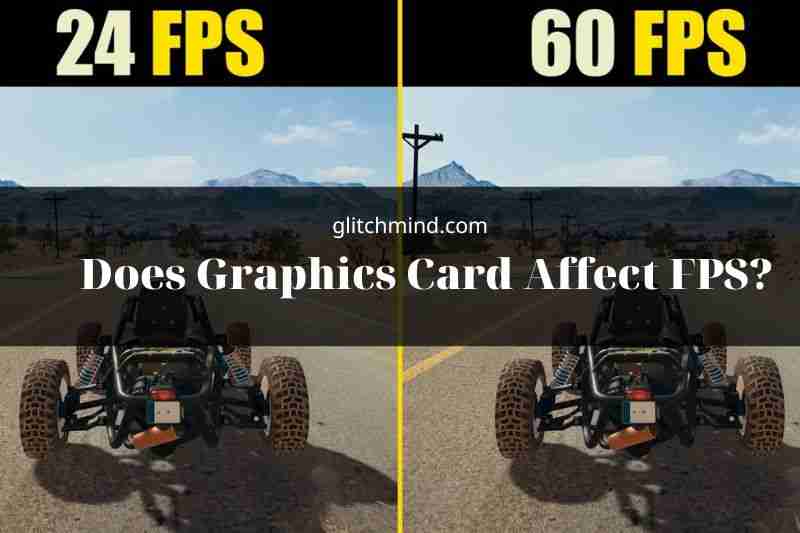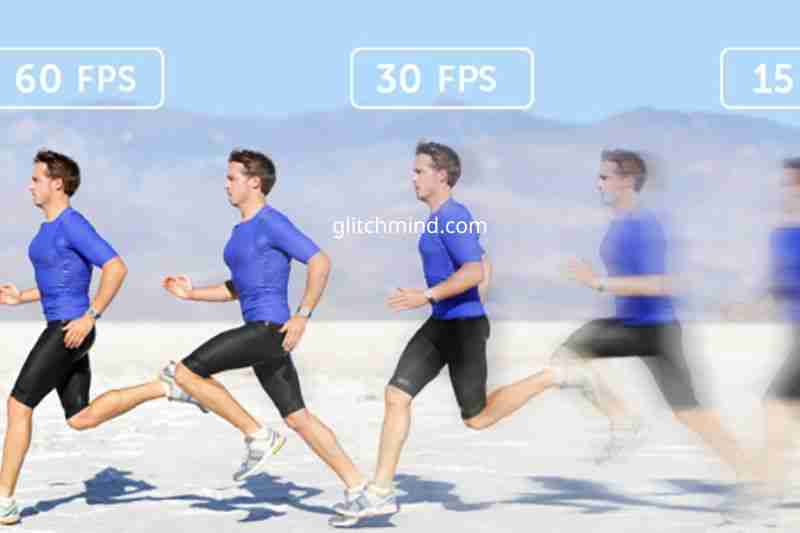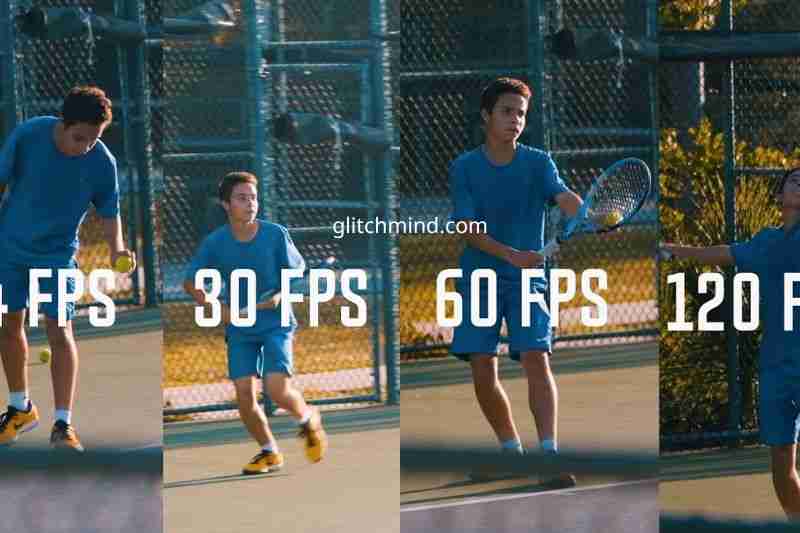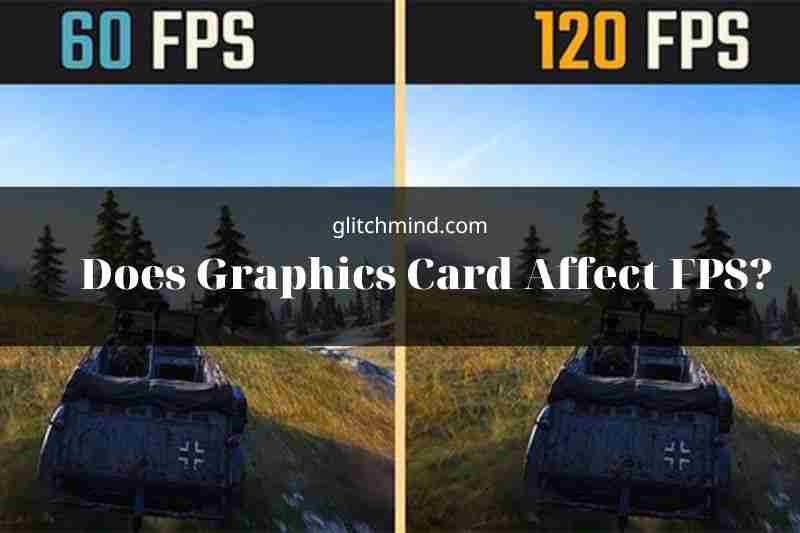Does Graphics Card Affect FPS? Graphics card affect FPS is a question that is asked a lot, and it is definitely something that we would want to know the answer to.
However, the answer to this question can vary depending on the graphics card and its Mont Blanc model. That is why it is important for you to ask the question if you want to know the answer.
What is FPS?
FPS, also known as frames per second, refers to the number of images the graphics card can create in a particular time. The game program transmits data to your GPU, which transforms frames and transmits them to your monitor. Therefore, the number of frames your monitor displays per second is known as FPS.
Check out the video below to comprehend the FPS more clearly:
Watching a movie in 1080p at 30fps signifies that 30 images are sent to your monitor via the graphic card every minute.
To achieve faster fps, the GPU has to deliver higher numbers of images to the display.

How much is FPS considered ideal?
If we’re talking about PC gaming, 60fps is considered to be the minimum you can expect in the present. At this point, games appear more smooth, and it doesn’t seem like you require more fps to boost the gaming experience.
Furthermore, most gaming monitors on the market have 60Hz refresh rates. In this case, it is unlikely that a monitor can provide you with higher fps, even if your GPU is powerful enough to provide the required CPU speed. The only option in the situation is to connect with your GPU with a more high-refresh speed (144Hz) game monitor.
So, it is essential to be aware of your “refresh speed” for your display when trying to reach more than 60fps gaming. It’s impossible to use standard gaming monitors, and you’re locked to 60fps for most of the time.
Therefore, even if the GPU can push beyond 60 fps in gaming on a PC, your monitor will not permit it. Gaming monitors with 144Hz or even 240Hz are the best choice if your GPU is equipped with that power.
You can quickly determine what refresh rates are on your display by right-clicking your desktop and then going into the “Properties” section of your display.
Does Graphics Card Affect FPS?
If you’ve been experiencing stutters and lags in your graphics, especially in gaming, you’re experiencing a poor FPS (frames per second). The only way to fix this problem is to purchase an upgraded graphics card.
So it is clear that “does graphics card impact FPS”? It is an unquestionable yes! The graphics card selection will directly affect the FPS when performing graphically demanding activities like gaming and video editing software.
It is evident from the name alone that graphics card is closely related to graphics, which is reflected in FPS and graphics quality.
Your graphics card choice can affect everything connected to 2D or 3D graphics processing unit.
Most people think that a graphic card is a device for gaming. It’s not true since it’s crucial for professional tasks like video editing or graphic design.
In this article, I will discuss in depth how a graphics card can affect FPS and in what way. I will also highlight what applications benefit from a GPU and its connection with the CPU.

How Does a GPU Affect FPS?
The primary goal of GPUs is to display an image on the computer’s display. The computer cannot do this without an exclusive or discrete GPU or APU. They are designed differently than CPUs and speedily and efficiently deal with lighting shadows, textures, and post-processing images.
A GPU is comprised of a variety of critical components that directly affect your FPS.
GPU Architecture: It is possibly the most significant factor. In general, the latest GPUs are superior. Additionally, the more powerful GPU architectures are available in different versions.
GPU Memory size The size of your GPU memory GPU comes with its own internal memory size buffer. The greater the number of GBs the video card has data, the more it can process at one time.
GPU Memory clock speeds and single core performance The rate is the speed at which the GPU is operating; the faster the gaming performance, the more efficient.
If you’re aware of the leading GPU aspects, you can find out how each one impacts your FPS and how to maximize the performance of your GPU. Once we have that said, it is time to look at another equally important issue.
What Exactly Is Frames Per Second?
This is the speed at which your graphics card changes the information displayed on your monitor. It affects the level of smoothness you believe the experience to be. The higher FPS you can get higher, the more efficient (but it’s only until the point at which you are).
Every second, based on the hardware of your system and the speed of your screen’s refresh, You will get a set amount of static images that are displayed quickly to create the appearance of motion.
Some people can only detect the FPS of a certain level and, therefore, be aware of decreasing returns after the threshold (some individuals cannot tell the difference between 120 and 240Hz, for instance).

How Much FPS Do You Need to Play Games?
The standard for balancing quality and efficiency is 60 frames per minute. There is no definitive rule regarding the number of FPS you should play – to each person’s individual.
You could, for instance, play chess in only one frame per second, which is perfectly perfect, as, in chess, reaction time is second only to being able to calculate the move in advance as well as taking time (unless you are playing bullet chess of course!).
How Can I Get More FPS in Games?
There are three methods to increase the FPS on gaming directly. The initial and most obvious option is to upgrade your GPU to a higher-performance one.
Another option is decreasing your graphics settings in-game to allow your GPU to produce higher frames per second. Reducing game settings like volumetric lighting or shadows can drastically increase your FPS with only an acceptable quality loss.
Imagine playing the Witcher 3; you would get a superior experience when playing at 60 fps stable instead of 45 fps but with slightly more realistic texture or shadows.
In addition, overclocking is the third most enjoyable way to increase FPS. Overclocking is the simplest method of adjusting your GPU to operate at a higher speed. It is possible to alter your GPU’s core and memory performance. Be cautious. However, you could encounter visual artifacts or an abrupt game crash when you do it.
The ideal range to the optimal range of GPUs speed and memory speed is the range where you don’t encounter any issues, and you will gain an increase in CPU performance.
How Much Does My GPU’s Memory Size Matter?
Each GPU comes with a set amount of memory built in. The speed and the amount of memory greatly influence your gaming. The GPU memory size will determine how much data your GPU can process.
It’s best to ensure that the memory size exceeds the requirements for in-game games to ensure the highest FPS and smoothest gaming. If your GPU is always using 100% of its memory, you may be experiencing stuttering or freezing and the frame rate decreases.
To figure out the amount of the memory on your GPU is being utilized in the game, take these steps:
Click CTRL + AL + DELETE, then click Task Manager.
Click on the tab Performance.
Choose your GPU. If you don’t have a dedicated GPU, you can check the CPU’s description instead.
Although the GPU memory size buffer isn’t as crucial as other GPU parameters like CUDA or Core number, clock speed, and architecture, it significantly impacts FPS stability. In many instances, simply having a faster memory speed when using the exact GPU will substantially increase FPS.

How to Find the Right GPU for Your Needs?
Finding the best GPU is about getting a device that meets your requirements. Below are two scenarios that can help you decide which GPU would work best for you:
If you’re looking to play the most up-to-date AAA contemporary game and will running games at 4k resolution with a 120Hz rate of refresh, you’ll require a top-of-the-line, most powerful GPU.
If you intend to play the standard MOBA sport here or at their weekly times, your hard-earned cash can be used in other aspects by choosing an entry-level or middle-level GPU instead.
The majority of GPUs were designed to appeal to specific audiences. The entry-level GPUs in the newer generation let you play and play all weak graphics card.
Be aware that the most frequently used GPU worldwide, according to Steam, can be found in the NVIDIA 1060. With that in mind, developers will be aware of the graphically demanding games they will be so that gamers can enjoy them fully.
Many of the latest entries towards mid-level GPUs can be efficient, so if, like most gamers and only play MOBA games such as League of legends, then purchasing an NVIDIA 3090-Ti is too much.
However, don’t disregard high-end GPUs. The greatest thing about most powerful NVIDIA control panel and AMD GPUs is that they’ll work not just for currently available games but in the coming years of game releases. Anyone who has purchased the legendary 1080-Ti can play games at 60fps when playing on Ultra high settings with resolutions of 1080 or 1440p, regardless of the game.
How Does My CPU Affect My FPS?
The CPU in your computer is the second most crucial component in gaming. CPUs manage calculations such as AI logic, complex physics, advanced physics, and streaming on the internet. They are also responsible for all critical background system functions. The latest games depend heavily on the CPU. Moreover, when your CPU cannot allow your GPU to work at full load, this will slow down your FPS.
Your CPU’s core count and clock speed can influence your FPS in-game.
Do not just purchase the cheapest CPU you can find and spend the entire budget to get the best GPU.
The performance of your CPU must be in line with and comparable to the performance of your GPU.
With the new AAA games coming out in the past, developing games around multi-core support and hyperthreading are becoming the norm. At the moment, the ideal location for the number of CPU cores you can count on would be six, as it provides an impressive productivity ratio compared to price.
However, eight-core CPUs are more secure for the future. You don’t have to worry if you’ve only a quad or dual-core CPU. There is no need for more than this for many of the most popular games.
If you’re looking for a substantial FPS increase, for free, Learn how to correctly overclock your processor if your model and motherboard support overclocking. This is a free FPS performance for a small cost of electricity.
What Affects FPS More CPU Or GPU For Gaming?
GPU, hands down, has a stronger influence on frame per second when opposed to a CPU.
FPS comparison on a budget Intel Core i3 vs. an expensive Intel Core i7 would be the minimum – when the graphics card remains identical.
However, the FPS comparison with a lower-end AMD Vega 8 integrated graphics card against a top-end NVIDIA RTX 3080 dedicated NVIDIA RTX3080 graphics card is phenomenal, as we’ve seen in the previous paragraph.
Bottom Line
Now you know the impact the GPU can have on enhancing your FPS when gaming. Combining your GPU with a compatible CPU can dramatically increase the enjoyment you get from gaming. Glitchmind hopes that you have found an answer to your query to this point. If you have other concerns about graphics cards, post them in the comments section.
